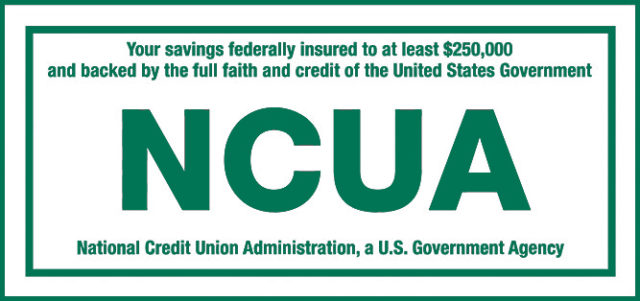Important information about your credit union
ACCOUNT NAMES
When you join a credit union, you become a member. Members own the credit union. Your savings account represents your share of the credit union, so it’s officially called a “share account” or “share savings account.” A checking account at a credit union is a “share draft account” because it is a share account from which you can draft, or draw, funds using checks, a debit card and our online bill pay service.
We may use terms like “savings account” and “checking account” for your convenience in understanding your accounts, but you always own your credit union through what are formally known as “share” accounts.
Also, banks may offer an interest-earning, fixed-term investment known as “certificate of deposit” or “CD.” At credit unions, the formal name is “share certificate” or “term certificate,” and it earns “dividends.” (Customers earn interest; owners earn dividends.) For your convenience, we may use the term “savings certificate” to describe such term share accounts.
DEPOSITS FEDERALLY INSURED
Deposits at all federal credit unions and the vast majority of state-chartered credit unions are covered by National Credit Union Share Insurance Fund (NCUSIF) protection. Not one penny of insured savings has ever been lost by a member of a federally insured credit union.
Federally insured credit unions offer a safe place for you to save your money, with deposits insured up to at least $250,000 per individual depositor. The National Credit Union Administration (NCUA) is the independent agency that administers the National Credit Union Share Insurance Fund (NCUSIF). Like the FDIC’s Deposit Insurance Fund, the NCUSIF is a federal insurance fund backed by the full faith and credit of the United States government.
Further information is available here. ![]()
EXTERNAL LINKS
By providing links to other sites, 1stCooperative.com does not guarantee, approve or endorse the information or products available on those sites. Web pages on 1stCooperative.com may contain one or more links to external internet sites, and external links may be followed with this icon: ![]()
FUNDS AVAILABILITY POLICY
Under the Expedited Funds Availability Act and Regulation CC, institutions are required to allow their customers to withdraw their funds no later than a specific number of business days after the funds are deposited.
The credit union’s policy is to allow withdrawal of funds deposited in your account on the same business day we receive your deposit. In some cases, the ability to withdraw funds may be delayed beyond the same business day. Delayed funds will generally be available by the second day after the day of the deposit.
CREDIT CARD APPLICATION AND SOLICITATION DISCLOSURE
CREDIT CARD AGREEMENT AND DISCLOSURE
PRIVACY POLICY
BYLAWS
